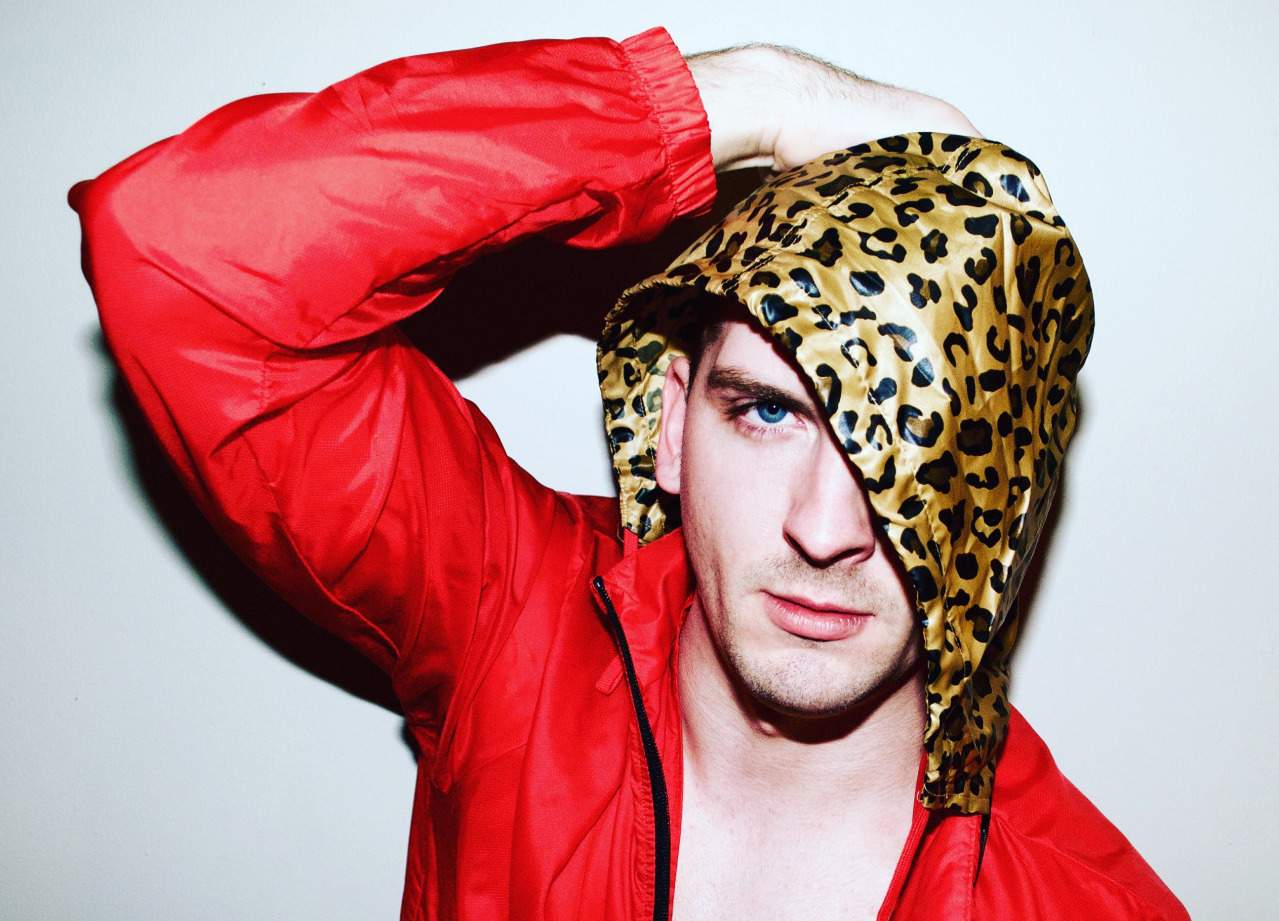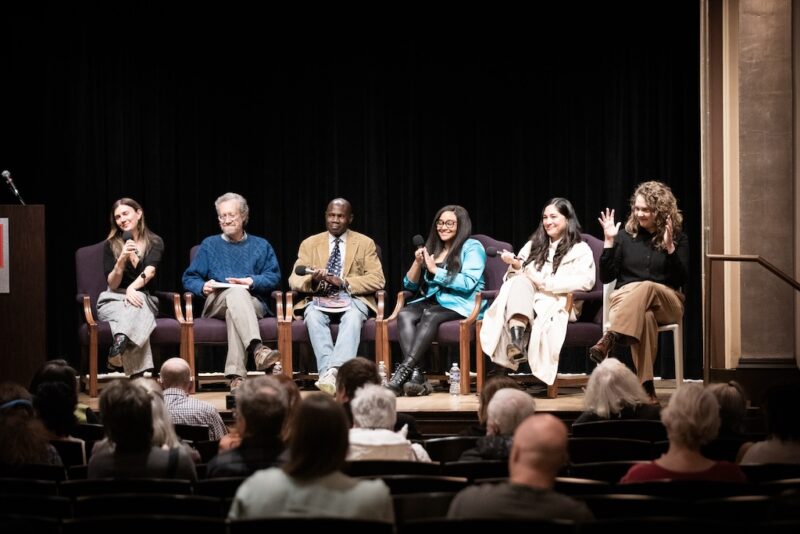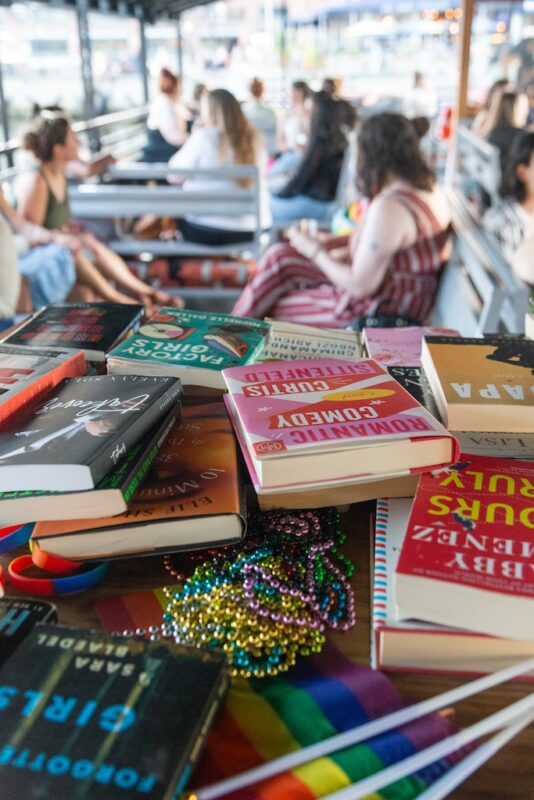A Conversation with Poet Stephen Zerance by Malcolm Lomax
Clad in Adidas from head to toe, Stephen Zerance is your gaming poet fantasy in sheep’s clothing – whose knowledge of K-Pop, serial killers, and horror films brings the meme star’s poetry to a fever pitch. Zerance is currently working on his second compilation of poems entitled Safe Danger, to be released early 2018 through Indolent Books. It’s title can act at once as a warning and then as lure – a paradoxical phrase with implications of caring for his audience’s well-being while still placing them in the line of fire. This interview is an inquiry into the trajectory of his practice and the thematic concerns that he’s carefully cultivated over time.
We start on a demanding rainy day. We press ourselves to the wind and, out of habit, I inquire about one of his friends. We then have a heart-to-heart, segueing itself into my first time at Hooters – reminding me of the precarious camp-laden emotional glamour that sometimes can happen in his poems. We order his suggestions. I lose myself in my phone.
When I come to, I ask about his young but popular meme account @lvcifers_revenge. Zerance’s 32K account features an ensemble cast of nought celebrities as subjects articulating the ways in which we experience online dating, socializing, working – a dip towards the feeling of being concussed but still maintaining legendary status. He is followed by major celebrities with which he’s built a repertoire. The same pop cultural lense through which the memes are made find a level of elevation in the poetry.
His first book, Caligula’s Playhouse, was an opportunity of chance – met by a personality type that never turns down a challenge. Zerance has taken to the live poetry reading as a display of pop performance – the attire as wardrobe, the gesture as choreography, and the audience as fans. His eventual aim is towards spectacle, the stadium concert tropes of backdrops, cues, and lighting breaking the confines of banal intimacy that most poetry readings tend to have. There is a confluence between his subject matter and its presentation. The poetry Zerance crafts has levels of distress, searching, violence, and fame – it explores some of his personal life and innerworkings and maintains a commitment to exploring contemporary cultural obsessions.
Our excursion ends with a walk back to his home, a second floor apartment/ beautiful bachelor pad, where we discuss relationships and poets as well as the independent streak one has to foster in both to maintain a sense of sanity. Once inside, we carry on by drinking vodka and watching Youtube videos, attempting to oneup each other with nonsense.
In the midst of this, Stephen states, “Wendy and Whitney. Do you know that interview? That interview was perfect because people think Whitney won. But Wendy held her own. Did Whitney win? No. We won. The audience won.” And like any good pop star, it’s always about the fans.

ML: I want to establish some groundwork and go back to the point where poetry became of interest to you – When did you start writing it? And who nurtured this?
SZ: I’ve been writing since an early age but I didn’t get serious about poetry until I was in undergrad. I saw a poster for a poetry contest and I told myself I’m going to win that… and then I did. I’m really competitive and like to win and that has nurtured it… you know Anne Sexton started writing because she watched a TV show about writing a sonnet and gave it a try and then, voila.
ML: Did you find being a poet to be a realistic pursuit when you were young? Has your perspective changed on this?
SZ: I never once have thought poetry was something to make a living off of or think it’s something for monetary gain. I knew I just had to find a career that enabled me to write.
ML: Like comedians having traumatic childhoods or artists being deemed mostly introverts… Do you find a prevailing stereotype about poets you actually think is true? Do you think you embody this stereotype?
SZ: What, an overly-dramatic-egotistical-narcissist-legendary-drunk? You won’t find me writing at a bar though. I’m not a fucking loser.
ML: You have so many interests and hobbies and you navigate them beautifully. What I find to be astounding is the depth of knowledge you have for these varied things: gaming, horror, poetry, criminality, social media… Can you provide a Stephen Zerance cheat sheet by recommending one of each? And then those that should be completely avoided at all cost.
SZ: Don’t look like a gamer but I love jrpgs and survival horror. We kill zombies around here. You can’t go wrong with Xenogears or the Resident Evil series. I’m a big horror movie fan, especially fond of the Giallo Films made by Bava, Fulci, & Argento. There’s something sexy about a man with a knife that just… snaps. For true crime–you can’t go wrong with the JonBenet Ramsey case. For poetry I like to read Constantine Cavafy. I like Japanese fiction by Yasunari Kawabata and some Haruki Murakami. I say, don’t get into theory. Yawn.
ML: In your childhood, did you ever write emo angst-ridden poetry? Instead of what the poem is about can you let me know what events lead to the writing of this poem?
SZ: I write it now [laughs]. But sometimes some of it is salvageable. My poem “After It Rains” is about how you can’t evict someone when it’s raining. So the poem itself deals with inner and outer transformation and skin shedding.
Today after it rains––nothing but evictions
all down Park Ave––endless tables, chairs,
sofas all carelessly flooding the banks
of the sidewalks, as if Baltimore loosened itself
inside-out. As if the city regurgitated
bricks. – “After It Rains”
ML: Baltimore tends to be a pretty polarizing place when you bring it up in conversation. People tend to have a nuanced understanding of it or a superficial one. What’s made you stay? What kinds of things do you find to be worthwhile here? How’s Elizabeth?

SZ: I love Baltimore. I moved here from D.C. while I was doing my MFA at American University. People in my workshops would be like “ew Baltimore” and I would always confirm their anxieties and bias because I didn’t want their lame asses to move here [laughs].
ML: Where is the best place to have the worst conversations?
SZ: Anywhere with an audience. A crowded, quiet cafe is the best.
ML: Because I am a visual artist and in a different field, I tend to become exhausted by scene politics… How is the poetry scene here? I want all the details.
SZ: I get involved a little but not much, so I can’t tell you. I’m always the first to duck out because I’m not that great of a schmoozer. I like to do my reading and dip. I wish I had my own dressing room sometimes. That’s the goal I’m working to, having one of those.
ML: I know there was one occasion Dan (Daniel Wickerham of Wickerham & Lomax) facetimed you while you were with your publisher and you were driving as I recall it. It made me curious about your working relationship. How did he discover your work? What goes into planning your releases?
SZ: Michael and Ian from Mason Jar Press heard me read at Charmington’s and then later asked me if I wanted to do my chapbook with them. I’m very much a “yes” person, so it was a really smooth process and how I like things to go. I’m a Libra and hate confrontation. They were great to work with.
ML: You have a book coming out next year. Are you ready to talk about it? Can you give us a few details I know it’s called “Safe Danger” How did you arrive at this title? And are there any tour dates?
SZ: Sure. It’s an expansion of my chapbook Caligula’s Playhouse with an added true crime twist. Sex and crime make the world go around. To get into the feel of the book I started correspondence with a lot of inmates. Some even infamous murderers or serial killers. I thought that this was safe danger in itself. I should be doing readings in 2018 in Baltimore and other areas.
ML: You have a pretty popular meme account with over 30K followers. Who’s the biggest celebrity in your DM’s? What kind of relationships do you build with them? Do you get free stuff?
SZ: Thanks! I make every single one of them myself over at @lvcifers_revenge. I’ve got Lindsay Lohan and Paris Hilton in mine. Also a really huge Youtube star… but I know nothing about that world. Paris is super sweet and has given me a few shoutouts. She’s the patron of my page (all of the memes target the early 2000s onslaught of Britney Spears, Lindsay Lohan, and Paris Hilton). It’s still growing and it will be a nice platform to promote the book.
ML: Who do you think is overrated in any community to which you identify?
SZ: It’s annoying to me that gays will boost a porn star who voted Trump that wants to teach you about communism and what art is. How dreadful.
ML: In your poem “Madonna” you state:
“I want a cheap twenty-two
year old lover that doesn’t speak
English. I want my hair bleach blond.
I want to go to the bar, Mother. I want
a vodka double, Mother, a double vodka
Madonna on the rocks.”
Can you talk a little bit about Stan culture and some of it’s pros and cons? Does it have an effect on your poetry as it does on your meme account?
SZ: I’m like an awful teenager on Twitter sometimes. If people have no idea what Stan Twitter is… It’s basically the whole community of people discussing the current pop landscape. I’m always thinking to myself… maybe I shouldn’t be talking about pop stars all the time and be more literary…. but that’s so boring. I write a lot about pop-culture… so my rule is that the people I write about have to be legends. Legends only. You can’t be out here talking about a fad from 2009.

ML: The poem Skintight addresses a sartorial choice and the backlash of such a choice in relationship to group think:
“I am to wear the outfit or my clothes will be ripped apart––
the neighbors are talking. No deals, no exceptions.
We are all there: my mother, my sister on the couch, my father
urging, Put them on. Put them on.”
ML: I’m curious about the dress that you’ve chosen now and how you’ve navigated towards your particular brand of style. What are some of the designers you find to be in alignment with how you want to present yourself? How has your style evolved over time?
SZ: I love wearing Jeremy Scott and Moschino. I like being the enfant terrible in the room. My style has gotten more and more obnoxious over time. Full on trollop.
ML: A reoccurring symbol/motif in the poetry is the mirror – how one looks, how one looks upon one’s self, how one weighs himself against the world. Why do u think it has such a presence in the work?
SZ: Well poetry is very selfish. Poets are selfish people. It is what it is.
ML: In True Crime and Another Exploitation in Which I Glamorize the Murder of JonBenét Ramsey, a Child of Six you touch on criminality and the media spectacle of it and notions of speculation and conspiracy. Have you found there to be any pushback because of this subject matter? Have you been able to find a different relationship to these things through the process of writing about them?
SZ: Oh of course. It’s always the “it’s too soon” aspect behind the criticism… or that the work is crass. But that’s the whole point of the work itself… I comment about the media’s role in creating this new world. A lot of TV stations are switching to an only true crime format. Oxygen network just did this. It’s very dark. Writing the poems about crime actually made me feel for the victims since when you are watching documentaries or see people on the tabloid you feel very removed and just like a spectator.
ML: In the poem Skintight, the act occurring there is kinda like a performance. I know in your live readings you’ve been trying to figure out ways to add more performative elements. Can you address this process and some of your point of reference for this?
SZ: Well some traditional readings put me to sleep. It’s a performance so I treat it like one. Don’t just mumble into your page. I like to put some elements of stand up in there… talk to the audience… get a feel for them… tell jokes and make people laugh. It’s hard though because I feel like poetry reading audiences have been molded in a lot of spaces to just be quiet and listen.
ML: You were telling me once about this bar you went to in Paris – where there was a Rapunzel type situation – where a suitor would have to climb up a rope in order to engage in courtship. How has your rope climb been? How are the suitors? Is writing about the process of self love and romantic love a good way to pull your expectations about your lived experience into perspective?
SZ: Oh that bar is way more nasty than you make it sound [laughs]. I’m honestly too busy for it and feel like the suitor will happen when it does. Writing about self love and romantic love is pretty empty. They’re just words at the end of the day. No one really wants to read about your breakup.
ML: Because I’m pretty ‘bodily’ and always ask this of people – Who would you fist fight? and /or Who would you save in a fight?
SZ: We punching nazis over here now in 2017. How does that happen in 2017? Who would I save? The video to my camera roll.
ML: Staying on theme, any last words?
SZ: Absolutely no regrets.
Author Malcolm Lomax is an artist (Wickerham & Lomax) who currently runs the events and programming at New America. He has exhibited works at Artists Space, Frieze, The Hessel Museum, Brown University, The Baltimore Museum of Art, and a First Look project with the New Museum. He is working on a poetry EP called XXIV Humans to be released in 2018 as well as a solo exhibition at American Medium (Fall 2018). As human, he reigns supreme.
Stephen Zerance’s poems have appeared in West Branch, Prairie Schooner, Quarterly West, Assaracus, and Knockout, among others. He has also been featured on the websites of Lambda Literary and Split This Rock. He received his MFA from American University, where he received the Myra Sklarew award. His debut collection Safe Danger is forthcoming from Indolent Books in early 2018.






